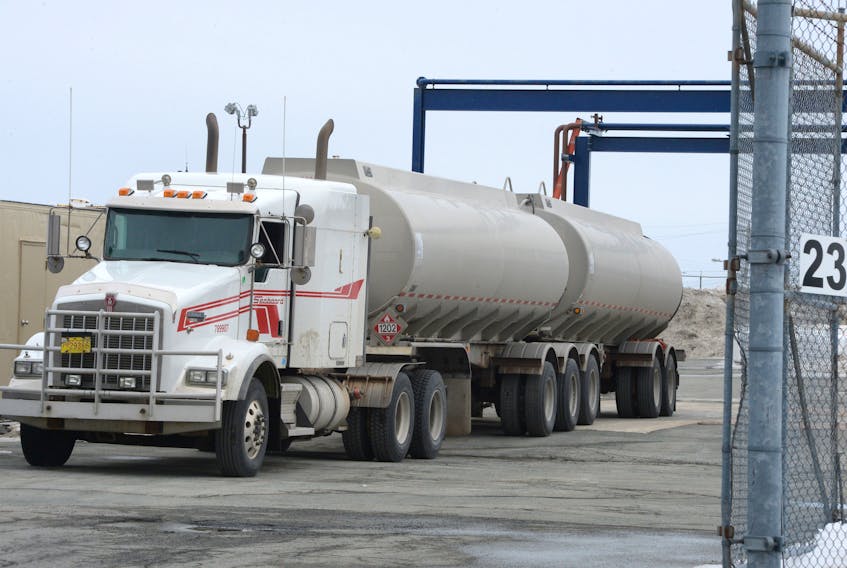NOVA SCOTIA
RALPH SURETTE: The carbon tax is needed to stiffen our backbones to face what’s coming

OK, let’s try the long view on this carbon tax business. Not that it will do much to dampen climate change in the short run, I admit.
What it might do, however, is put some much needed iron in our flabby souls when it comes to facing climate reality.
Yes, Trudeau has dumped on our summer fun, but in fact the carbon tax is just reality in one of its many increasingly ominous forms. (And, yes, there might be alternatives but there’s no serious political voice to make the case, the Poilièvre Conservatives being, at their core, a tarsands party.)
Will this shock be the one that finally gets us to change our ways, which we so fiercely resist?
These shocks have happened repeatedly since the original one in 1973, when the OPEC cartel was formed and put oil prices temporarily through the roof. Climate change wasn’t the issue then, but environmental destruction was (and our vulnerability to oil shocks).
And every time oil prices spiked, a certain sobering kicked in, both at the societal and governmental levels.
But inevitably prices drifted down again and the practice, the philosophy, the justification of energy waste as a way of life, both individually and in the way we organized our physical infrastructure and our general economy, just got worse and worse, tracking the deteriorating climate.
At the local level, here in Yarmouth County, I’m always astonished at how casually some people will drive a monster truck 10 kilometres for a cup of coffee, drive three hours to Halifax to shop a few hours then drive back, or drive to Halifax and take a plane to see a ball game or a concert in Toronto as though this is normal life disconnected from environmental reality. And heaven help the nasty Trudeau if he puts a crimp in all that.
Keep in mind that in our perverse way of measuring progress, all this is good for the economy — more people spewing carbon is good for economic growth, although at the cost of both environment and climate.
On the larger scale, there’s what’s being called revenge travel, people prevented from travelling during COVID and now itching to go.
In the U.S., this July 4 holiday saw more cars on the road than ever and huge numbers clogging the airports, even though thousands of flights were cancelled because of violent, climate change-driven weather, which makes an ironic point. (Another ironic point: July 4 was the hottest day ever recorded on Earth — so far.)
Granted that this sudden tax jolt (plus an increased refinery levy to go with it) is a problem for many: small businesses, delivery people, people who have to drive, renters with oil heat and so many others caught in many ways.
However, this is only half a story. The argument that Maritimers are older, more rural and still more dependent on oil for home heating, therefore more vulnerable than other Canadians, needs a tweak.
This will vary but, in my experience, I’ve found many older people who just hang on to oil no matter the cost, perhaps partly out of habit but mostly because they figure they won’t be there for long so why bother.
These are people who own their own homes, like most rural Maritimers, and are not as poor as they are sometimes made out to be. In fact, as old-time Maritimers they’re quite resilient and could probably teach you something about dealing with life’s problems instead of whining about them.
The attitude seems to be that the pension money, the energy rebates, the savings cover it, so why bother changing? In one case, I’m told of an elderly person who last winter paid $10,000 for oil, an amount that would have, in one year alone, either insulated the leaky old house or bought a couple of heat pumps.
These are not cases that need — or are looking for — sympathy or Premier Houston’s woeful song. Time and/or rising prices will take care of that one. And rising prices are in fact the proper thing to make most of us think twice about some of our loose energy habits, and for governments and institutions of all stripes to address at last, after 50 years of procrastination, the need to gear what we build to the climate emergency.
Speaking of the climate emergency, which is what this is all about, I was intrigued by last Saturday’s paper, which was full of complaint about the carbon tax, capped off by an article among the obits entitled Climate nears point of no return, say experts, outlining the speed at which the situation is deteriorating, with this year’s deadly heat waves already the worst ever throughout the U.S. South, parts of Europe, and India and China.
Sobering indeed.
No comments:
Post a Comment